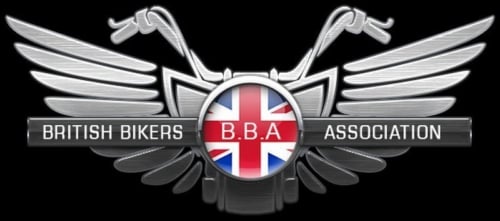Don’t risk your life by taking a barbecue into your tent
Posted on
The charity Carbon Monoxide Awareness launched a 'National' campaign to raise awareness of the dangers of carbon monoxide poisoning from barbecues. The campaign is being launched to help raise awareness about the dangers of carbon monoxide.
The campaign in memory of 14 year old Wilmslow schoolgirl Hannah Thomas-Jones and others who lost their lives to carbon monoxide from barbecues or camping lamps was launched in the House of Commons on Tuesday 10th July.
The launch event will be hosted on behalf of the charity by Weaver Vale MP Graham Evans. The campaign is a joint venture between Carbon Monoxide Awareness (charity) and Cornwall Fire and Rescue Service. The campaign has the support of CFOA and a number of major retailers including Asda, Tesco, Morrison’s, Waitrose, Homebase, B & Q and Dunelm Mill who have pledged to put up point-of-sale notices in their stores for barbecue equipment.
Lynn Griffiths, President of Carbon Monoxide Awareness, said: “Already this year there have been a number of camping fatalities and serious injuries resulting from people taking barbecue equipment inside their tents”. These products are designed solely for outdoor use and should not be used in enclosed spaces such as tents, caravans, campervans or home. Modern tents are designed as an integral structure with built-in groundsheets and carbon monoxide gases can rise to fatal levels in a matter of minutes if portable or disposable barbecues are used inside for heating purposes.
Carbon monoxide (CO) is difficult to detect because it is colourless and has no taste or smell. People often don’t realise that they are being overcome by fumes until it is too late. “We shall be working with Fire and Rescue services across the UK to get educational and awareness packs to the UK holiday industry for the benefit of holiday-makers. We shall also be targeting campsite owners and their staff with information on how to recognise the presence of carbon monoxide in enclosed tented areas caravans. We’ve seen too much tragic loss of life and we want to avoid it in future.
Lynn went on to say “I would like every MP to warn their constituents about the possible dangers of carbon monoxide in the home and when going away on holiday. We don’t want to see another death or injury from a barbecue during a music festival, Olympics or summer holidays. I am also campaigning to have carbon monoxide advice prominently displayed on the packaging of barbecue’s and tents and our politicians can be very influential in making this happen.”
Exposure to the gas reduces the blood’s capacity to carry oxygen, thereby causing the vital organs to fail. Early symptoms are similar to flu or food poisoning, but these worsen as more of the gas is breathed in and CO concentrations in the blood increase. Anyone who suspects that they may be suffering from carbon monoxide poisoning should turn off all appliances, go outside and seek help from a qualified healthcare professional.
For more information or to download the charity's carbon monoxide android phone app visit www.covictim.org
General advice
A lit or smouldering barbecue should never be taken into a tent, caravan, campervan or home. Liquefied Petroleum Gas (LPG) powered appliances should be serviced by a Gas Safe registered engineer who is qualified to work with LPG. Solid fuel appliances should be serviced by a solid fuel HETAS registered engineer. Oil fuelled appliances should be serviced by an OFTEC registered engineer. For their personal safety, holiday-makers should buy an audible carbon monoxide alarm that meets British or European Standards (EN 50291).
Notes
Lynn Griffiths, President of Carbon monoxide Awareness was poisoned by Carbon monoxide along with her family for over a decade in their new home. This is why she set up the charity Carbon Monoxide Awareness and founded the National Carbon Monoxide Awareness week.
“CO’ is the chemical symbol for carbon monoxide
A recent analysis revealed the hidden toll from this dangerous invisible gas to be 4,000 visits to A&E. 200 people hospitalised and around 50 deaths each year.
The charity's campaign is being supported by (CFOA) The Chief Fire Officers' Association.




